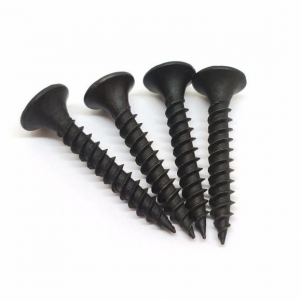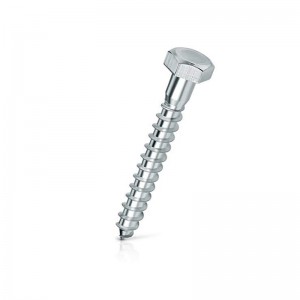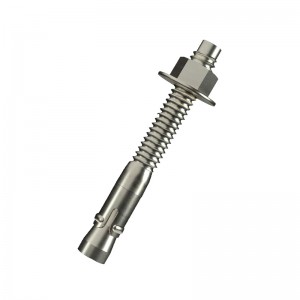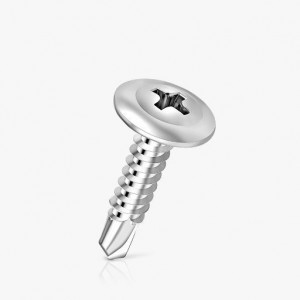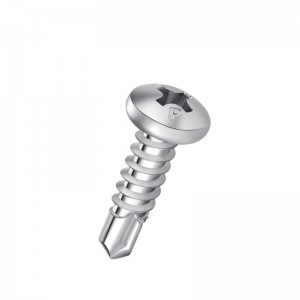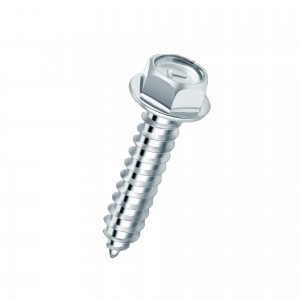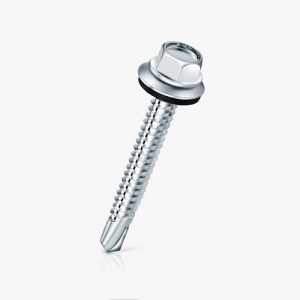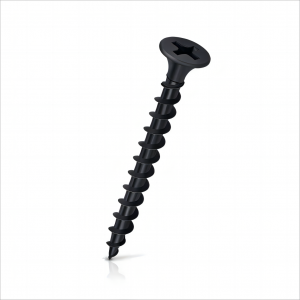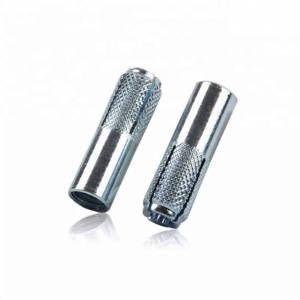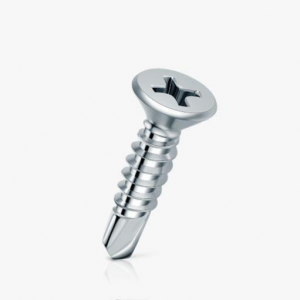Handan Double Blue Fastener
Gypsum screw
Description
Drywall screws have become the standard fastener for securing full or partial sheets of drywall to wall studs or ceiling joists. Drywall screws’ lengths and gauges, thread types, heads, points, and composition at first might seem incomprehensible. But within the area of do-it-yourself home improvement, this vast range of choices narrows down to just a few well-defined picks that work within the limited types of uses encountered by most homeowners. Even having a good handle on just the three main features of drywall screws will help drywall screw length, gauge, and thread.
Application of Drywall Screws
Drywall screws are the best way to fasten the drywall to the base material. With a wide range of products and good quality, our drywall screws provide you the perfect solution for different kinds of drywall structures.
Installation Steps of drywall screws
1.Drywall screws are easy to use if you choose the right screws and proper driven fasteners.
2.Select the appropriate size of drywall screws. Ensure that the length of the screw is at least 10mm more than the thickness of the drywall.
3.Mark off where the studs are, lift the drywall panel to the right place. Make sure the screws are no less than 6.5mm to the edge of the drywall.
4.Adjust the screw gun for the proper depth, and put the collated drywall screws on it.
5.Hold the drywall tightly, and use the screw gun to screw the screws into the drywall and base materials.
6.Remove the screws that missed the studs.
Drywall Screw Terminology and Features
☆ Bugle head: Bugle head refers to the cone-like shape of the screw head. This shape helps the screw stay in place, without tearing all the way through the outer paper layer.
☆ Sharp point: Some drywall screws specify that they have a sharp point. The point makes it easier to stab the screw into the drywall paper and get the screw started.
☆ Drill-driver: For most drywall screws, you will generally use a #2 Phillips head drill-driver bit. While many construction screws have begun to adopt Torx, square, or heads other than Phillips, most drywall screws still use the Phillips’s head.
☆ Coatings: Black drywall screws have a phosphate coating to resist corrosion. A different type of drywall screw has a thin vinyl coating that makes them even more corrosion-resistant. Additionally, they are easier to draw in because the shanks are slippery.
Gypsum screw
A wedge anchor is a type of mechanical anchor that is commonly used to secure heavy objects to concrete or other masonry materials. It consists of a threaded shaft with a cone-shaped end, which is inserted into a pre-drilled hole in the concrete. When the nut on the top of the anchor is tightened, the cone is pulled up against the sides of the hole, causing the anchor to expand and grip the concrete.
Product Features
Wedge anchors are made from high-strength steel and are available in a variety of sizes and finishes to suit different applications. They feature a design that allows them to distribute weight evenly across a large surface area, which makes them ideal for securing heavy equipment or structures. Additionally, they are designed to be installed quickly and easily, making them a popular choice for both DIY enthusiasts and professional contractors.
Product Benefits
Wedge anchors offer several key benefits, including:
High load capacity: Wedge anchors are capable of supporting heavy loads, making them suitable for use in applications where safety is paramount.
Reliable performance: Because they are made from high-strength steel, wedge anchors are durable and long-lasting, providing reliable performance in even the toughest conditions.
Easy installation: Wedge anchors can be installed quickly and easily with just a few basic tools, making them an ideal choice for both DIY enthusiasts and professional contractors.
Versatility: Wedge anchors can be used to secure a wide variety of objects to concrete or other masonry materials, making them a versatile solution for many different applications.
Product Applications
Wedge anchors are commonly used in a variety of applications, including:
Securing heavy equipment: Wedge anchors are often used to secure heavy machinery or equipment to concrete floors, ensuring that they remain stable and secure.
Anchoring structural elements: Wedge anchors can be used to anchor structural elements such as beams or columns to concrete walls or floors.
Attaching fixtures: Wedge anchors are commonly used to attach fixtures such as handrails, lighting fixtures, or signage to concrete walls or floors.
Installing fences and gates: Wedge anchors can be used to secure fence posts or gate hinges to concrete surfaces.
contact us to get best quotation
- English
- French
- German
- Portuguese
- Spanish
- Russian
- Japanese
- Korean
- Arabic
- Irish
- Greek
- Turkish
- Italian
- Danish
- Romanian
- Indonesian
- Czech
- Afrikaans
- Swedish
- Polish
- Basque
- Catalan
- Esperanto
- Hindi
- Lao
- Albanian
- Amharic
- Armenian
- Azerbaijani
- Belarusian
- Bengali
- Bosnian
- Bulgarian
- Cebuano
- Chichewa
- Corsican
- Croatian
- Dutch
- Estonian
- Filipino
- Finnish
- Frisian
- Galician
- Georgian
- Gujarati
- Haitian
- Hausa
- Hawaiian
- Hebrew
- Hmong
- Hungarian
- Icelandic
- Igbo
- Javanese
- Kannada
- Kazakh
- Khmer
- Kurdish
- Kyrgyz
- Latin
- Latvian
- Lithuanian
- Luxembou..
- Macedonian
- Malagasy
- Malay
- Malayalam
- Maltese
- Maori
- Marathi
- Mongolian
- Burmese
- Nepali
- Norwegian
- Pashto
- Persian
- Punjabi
- Serbian
- Sesotho
- Sinhala
- Slovak
- Slovenian
- Somali
- Samoan
- Scots Gaelic
- Shona
- Sindhi
- Sundanese
- Swahili
- Tajik
- Tamil
- Telugu
- Thai
- Ukrainian
- Urdu
- Uzbek
- Vietnamese
- Welsh
- Xhosa
- Yiddish
- Yoruba
- Zulu
- Kinyarwanda
- Tatar
- Oriya
- Turkmen
- Uyghur





